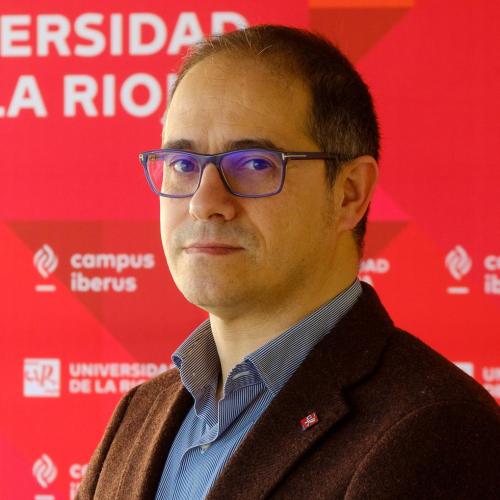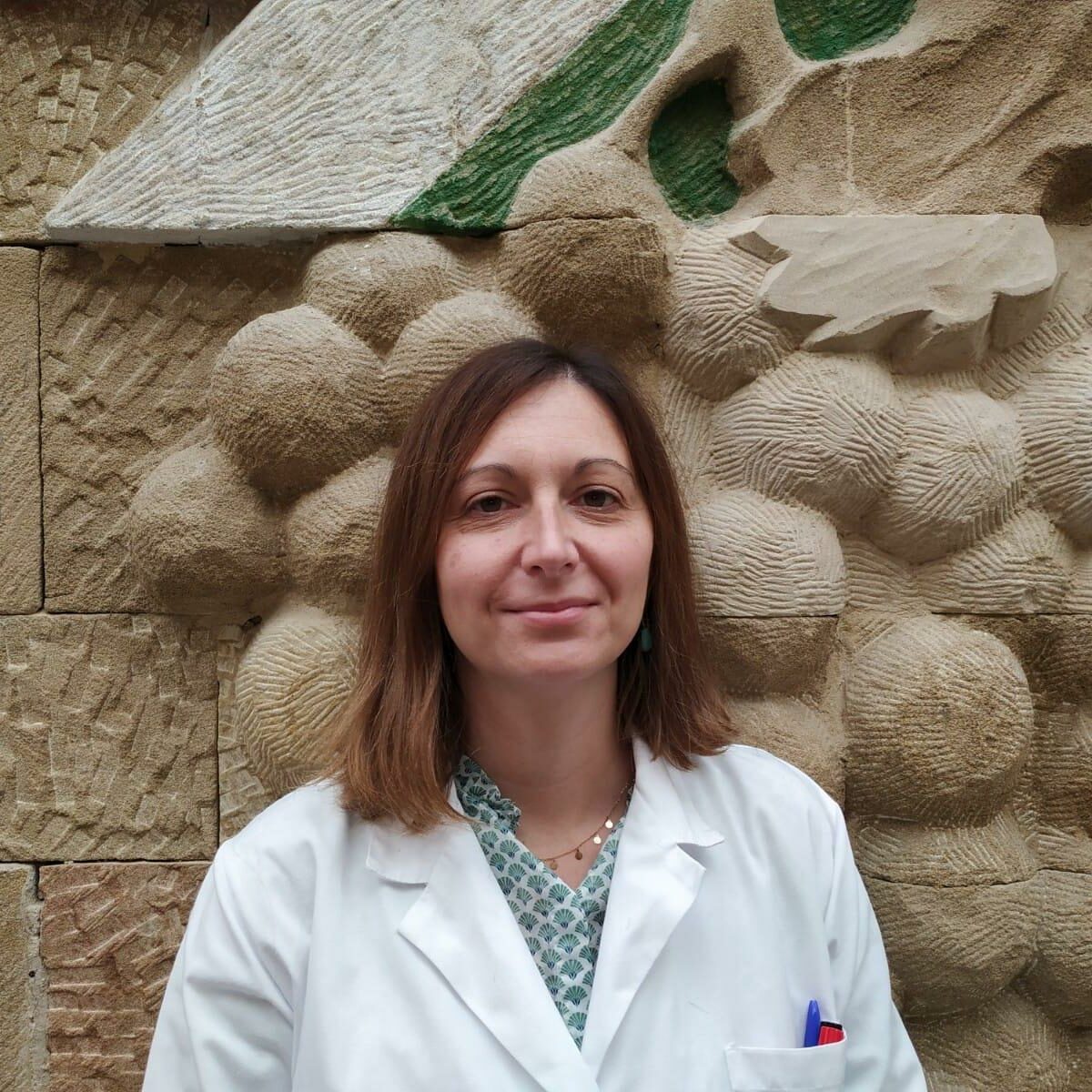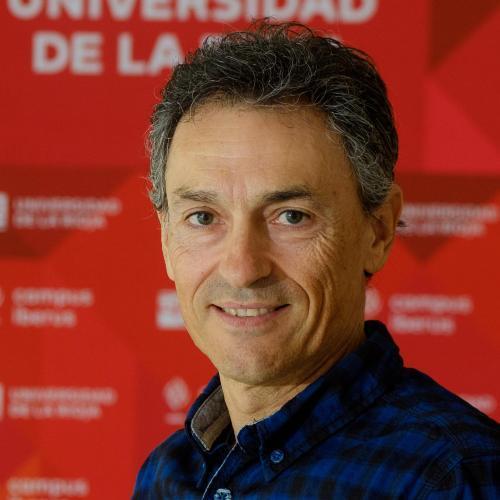AREA
CAA/ Agricultural and Agri-food sciences. CTQ / Chemical sciences and technology
SUB AREA
ALI/ Food science and technology. QMC/ Chemistry
KEYWORDS
NMR APPLICATIONS; METABOLOMICS; FOOD MICROBIOLOGY; WINE; FERMENTATION; METABOLITES EVOLUTION AND DIFFERENTIATION; QUALITY BIOMARKERS; MICROBIAL SUSCEPTIBILITY ANALYSIS; FOOD SAFETY;
SUPERVISORY TEAM

ASSOCIATED PROF. JESÚS HECTOR BUSTO
Supervisor
Dr. Héctor Busto is associate professor at the University of La Rioja. He has carried out his research career for more than 25 years. He got his PhD at the University of La Rioja with a FPU fellowship and postdoctoral stay at the University of Berkeley with Prof H. Rapoport. Later, he was an Assistant Professor at the University of Zaragoza. In 2004, the researcher was awarded a Ramón y Cajal contract to continue his work at the University of La Rioja, focusing her lines of work on synthesis of amino acids and the use of Nuclear Magnetic Resonance (NMR) in conformational analysis and application in microbiological studies.
He has been from 2014 to 2018 the Director of the Master’s and Doctoral School of the University of La Rioja. He has supervised numerous PhDs and postdoc researchers. He has published 128 papers, 78 of them in Q1 and has been IP of 5 projects. He has 4 periods of six years of research and has supervised 9 doctoral theses.

DR. EVA LÓPEZ RITUERTO
Co-Supervisor
Dr. Eva López Rituerto is the head of the NMR laboratory at the Estación Enológica de Haro in managing of Bruker’s Wine-Profiling equipment, an analysis method that allows the “fingerprint” of a wine to be obtained and which is the only one of its kind in Spain. She has a degree in Chemistry and in Oenology, and a PhD by the University of La Rioja under the direction of Professors Dr. Jesús Manuel Peregrina and Dr. Jesús Héctor Busto with a work on the use of Nuclear Magnetic Resonance (NMR) in the field of wine. Her doctoral thesis was awarded the prize for the best thesis in the field of NMR in 2013 by the NMR Specialist Group of the Spanish Royal Society of Chemistry. During her pre-doctoral stage, she did a research stay in Professor Engelsen’s group. She is the author of 14 scientific publications, 4 of them in Q1. The interconnection between University and Estación Enológica with Eva López expertise in NMR and wine producing companies is key for the development of new methodologies with a high economic impact in this essential sector.

PROF. JESÚS MANUEL PEREGRINA
Co-Supervisor
Dr. Peregrina obtained his Ph.D. degree in Chemistry from the University of Zaragoza (UZ) in 1992. He was hired by the University of La Rioja (UR) in 1992, and in 1997 he obtained the position of Associate Professor of University in the Chemistry Department of the UR. In 2009 he got the rank of Full Professor at UR.
He has recognized 6 periods of teaching and 5 of research.
His research is focused on the stereoselective synthesis of non-natural amino acids and its incorporation into glycopeptides. As expertise in nuclear magnetic resonance (NMR), his major interest is related to the structure of glycopeptides and their use in clinical applications (tumor detection and anticancer vaccines). He has published 150 papers, >100 of them in Q1 (h 30). He has supervised 17 doctoral theses. He was the Chairman (2014-16) of the Specialized Group of Carbohydrates (Royal Spanish Chemical Society) and Vice-Chairman to present. He has been the PI of several research projects.
RESEARCH GROUP
DESCRIPTION
The research group has expertise on NMR and metabolomics applied to the area of food and microbiology. The group is currently composed by 5 senior members: Jesús Manuel Peregrina and Alberto Avenoza (Full Professors) and Francisco Corzana, Jesús Héctor Busto and Marimar Zurbano (Associate Professors), 4 postdoctoral researchers (Fayna García –Beatriz Galindo– and Ester Jiménez –Juan de la Cierva–), and two associated with research projects (Ismael Compañon and Emilio San Martín), and 3 PhD students (Pablo Tovillas, Alicia Asín and Paula Oroz Mateo).
In the last 5 years, the group has supervised 11 PhD theses.
The group is currently collaborating with different researchers about the application of NMR in various fields such as food (Prof. Soren Engelsen and Dr. Eva López-Rituerto and medicine (Dr. José Antonio Oteo). Main research lines at the moment:
1) Evolution and differentiation of wines. The evolution of different wine metabolisms at different stages such as alcoholic fermentation, malolactic fermentation and aging has been studied using NMR. In addition, in collaboration with Prof. Soren Engelsen, wines of very close origin inside the “Denominación de Origen Calificada Rioja” (D.O.Ca. Rioja) have been discriminated. As a result, a doctoral thesis has been defended and several articles have been published in Q1 journals.
2) Evolution and differentiation of edible fat. In collaboration with the company Embutidos Luis Gil, the Spanish sausage production process has been monitored using NMR. Products derived from different materials and geographical areas have been analyzed and distinguished by metabolomics studies. As a result, a doctoral thesis has been defended and an article published in Q1.
3) Microbial susceptibility analysis. Using NMR, studies have been carried out to calculate microbial susceptibility. As a result, a doctoral thesis has been defended, several international articles have been published and a patent has been developed.
All projects are essentially interdisciplinary and involve various companies and institutions in the chemical, food and health fields.
OUTPUTS OF RELEVANCE
Patent: Method for assessing the susceptibility of a microbial population to drugs, by means of nuclear magnetic resonance (NMR) WO 201 1/148016 A1
NETWORK OF COLLABORATORS
University of Copenhagen, Denmark.
Estación Enológica de Haro – Government of La Rioja, Spain.
CAREER DEVELOPMENT
PROPOSED SECONDMENT
A secondment for 3 months is proposed at the Estación Enológica de Haro, which is a reference laboratory in the enology field in Spain. The research fellow will have access to key laboratory equipment and will mainly get skilled in 1H NMR analysis of wine and data processing of NMR spectra. She/he will also have the opportunity to transfer knowledge from the university to the productive sector associated one of most relevant industries in Spain as it is wine production.
DESIRABLE DEVELOPMENT
Employability
Building collaborative networks
Trainings
Fundraising (grants, projects)
TRAINING SKILLS
Project management
Grant writing
Time Management
Leadership
Open Science
Entrepreneurship
Specific skills:
OTHERS


